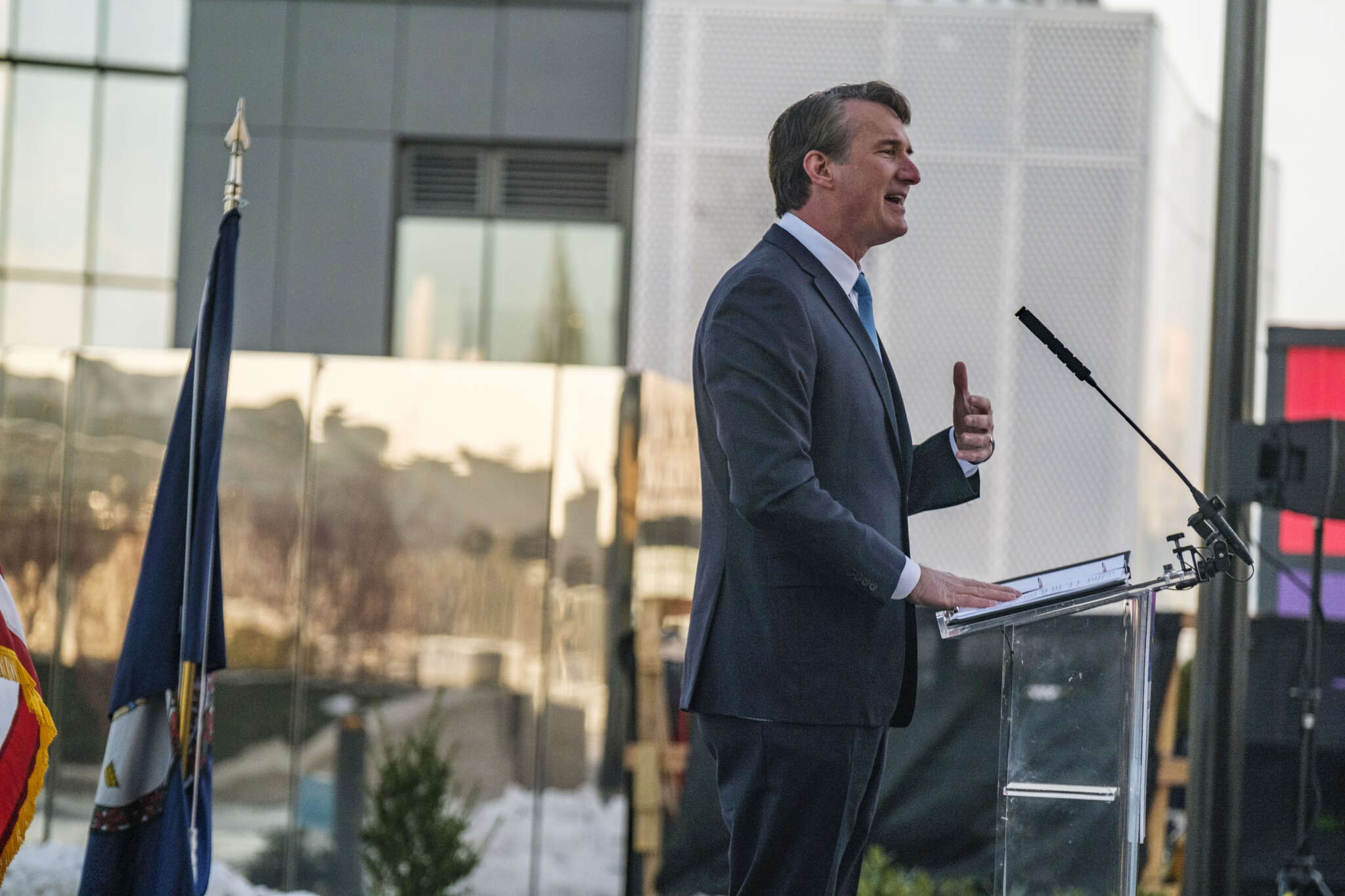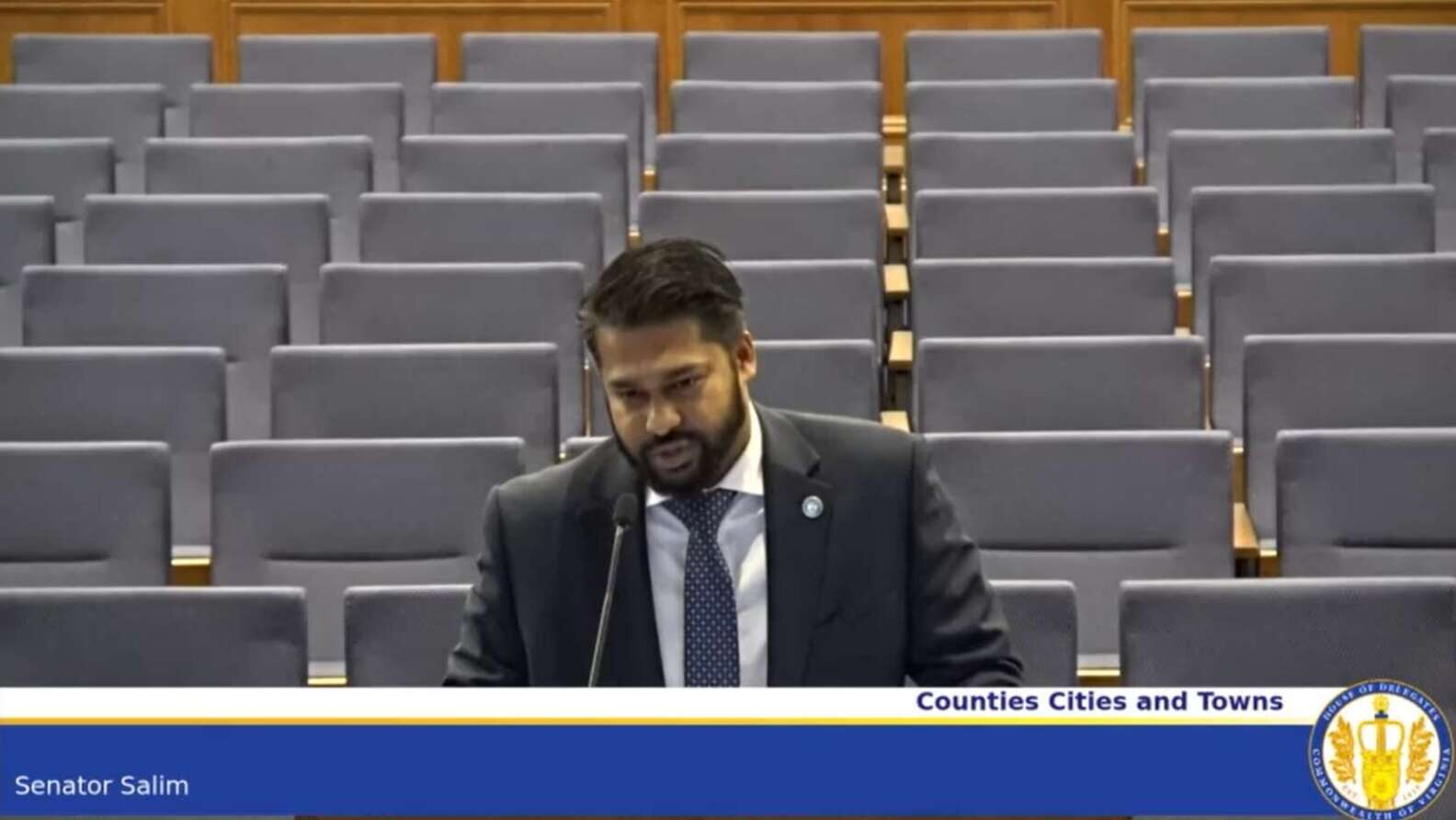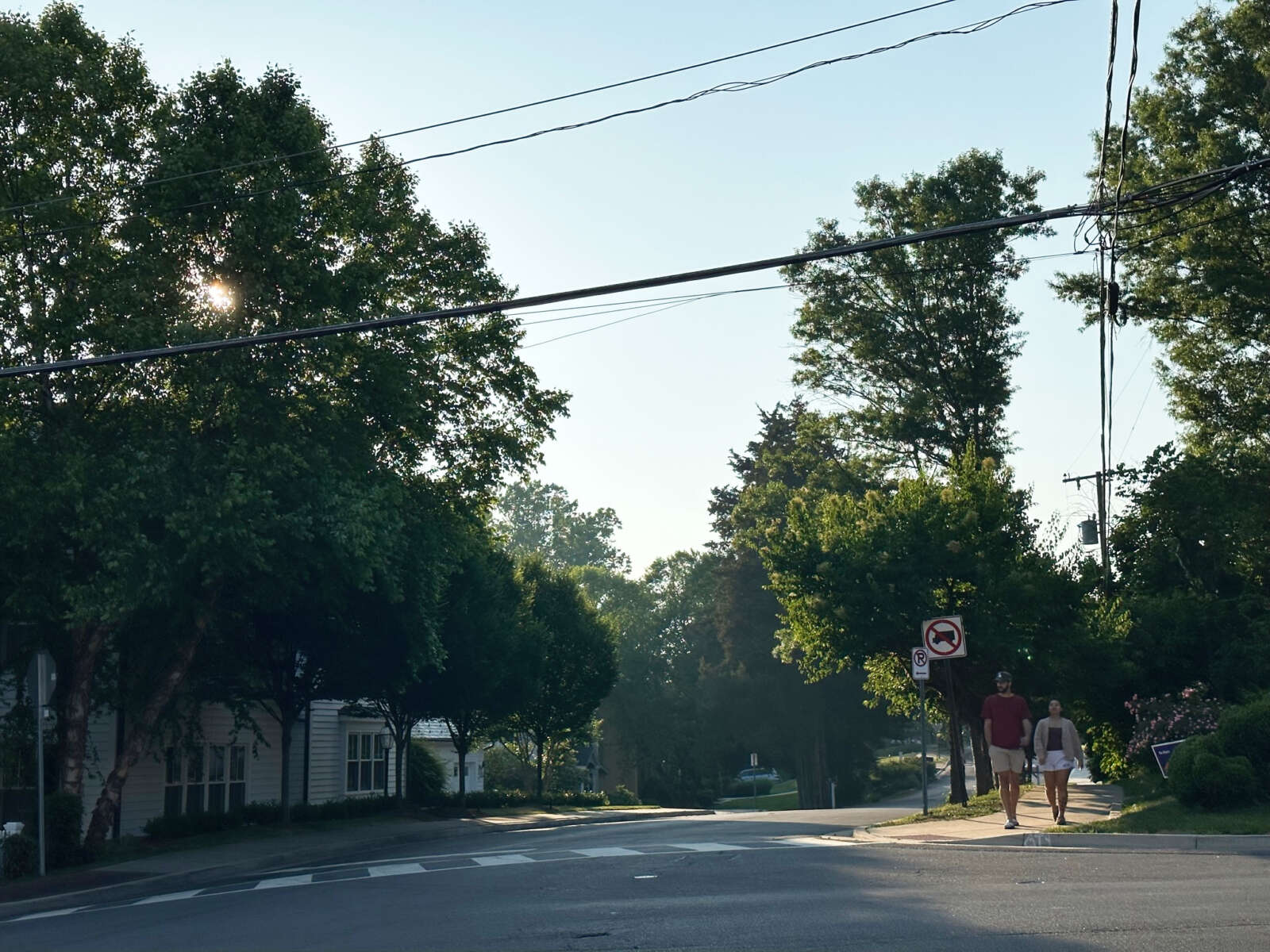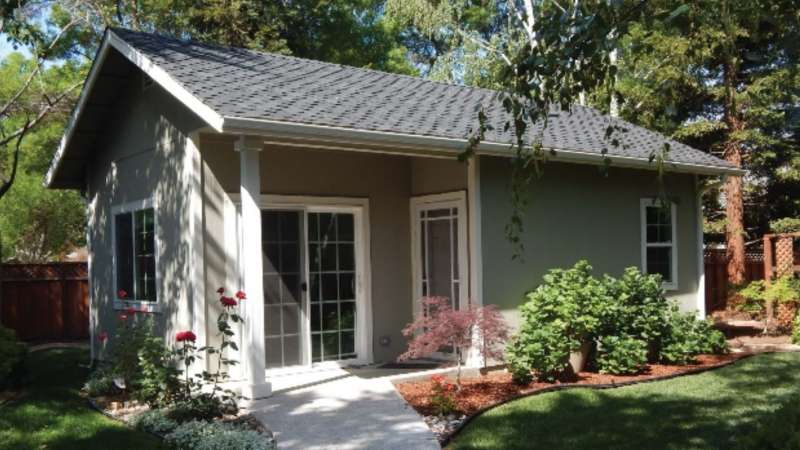
A bill to raise Virginia’s minimum wage got the ax in Richmond despite the support of three Fairfax County state senators.
Gov. Glenn Youngkin (R) vetoed legislation on March 28 that would’ve increased the minimum wage from $12 to $15 an hour by 2026. Sens. Jennifer Boysko, Saddam Salim and Adam Ebbin, who all represent parts of Fairfax County, were among several Democrats to sponsor the bill.
The governor also struck down a bill sponsored by Ebbin (D-30) that would have legalized the sale of recreational marijuana in Virginia.
Ebbin said he was “disappointed but not surprised” by the decisions and sees no reason to believe Youngkin will change his mind in future years.
“We need a Democratic governor to sign these bills,” the senator said.
The minimum wage bill would’ve boosted the rate to $13.50 an hour starting Jan. 1, 2025 before reaching the full $15 in 2026. Youngkin argued that his veto protects small businesses in parts of Virginia outside of the D.C. suburbs.
“The free market for salaries and wages works,” the governor said. “It operates dynamically, responding to the nuances of varying economic conditions and regional differences. This wage mandate imperils market freedom and economic competitiveness.”
A minimum wage increase “may not impact Northern Virginia, where economic conditions create a higher cost of living,” Youngkin added.
Salim (D-37), whose district includes Tysons, Vienna and the cities of Fairfax and Falls Church, disputed Youngkin’s claims, calling the veto “deeply disappointing and detrimental to the well-being of workers and struggling families across Virginia.”
“Our current minimum wage is not a living wage, particularly here in Northern Virginia,” he said. “I believe that every worker deserves a living wage. By rejecting this bill, the governor is essentially endorsing policies that grow economic inequality and hardship.”
Democrats in the Virginia Senate will continue to fight for a minimum wage increase next legislative session, Salim said.
Boysko (D-38), who represents Reston, Herndon, Great Falls and McLean, argued that the current minimum wage is part of a “cruel system” that forces many people to “scrounge for benefits” from the state and nonprofits, contributing to Virginia’s workforce shortage.
“Many businesses are not paying a living wage,” Boysko said. “If employers cannot figure out how they would live on what they pay their employees, we have an economic problem and a moral problem.”
For the marijuana bill veto, Youngkin pointed to adverse health effects associated with the substance. He argued that even medical cannabis has had “perverse and dangerous consequences” akin to opioids.
“Attempting to rectify the error of decriminalizing marijuana by establishing a safe and regulated marketplace is an unachievable goal,” he said. “The more prudent approach would be to revisit the issue of discrepancies in enforcement, not compounding the risks and endangering Virginians’ health and safety with greater market availability.”
Virginia became the first Southern state to legalize marijuana possession in 2021 after then-governor Ralph Northam, a Democrat, signed a bill intended to set the stage for recreational sales to adults starting in 2024. Proponents characterized the move as a necessary corrective to address racial disparities in the enforcement of marijuana crimes.
Ebbin, whose district includes Bailey’s Crossroads and Seven Corners, argued that marijuana is less harmful than alcohol and that preventing its legal sale only encourages people to turn to illegal sources.
“It’s an adult choice that some adults make, and we don’t need a black market,” he said.

In the latest round of action on bills, Virginia Gov. Glenn Youngkin signed 100 bills passed by the Virginia General Assembly, including one to protect Virginians from unlawful discrimination, hate crimes and antisemitism. The governor vetoed four others, including one to create civil penalties for shop owners who fail to advertise they are selling invasive plants that could harm other species.
Among the 100 bills signed is a measure that will codify a recommendation by the Commission to Combat Antisemitism that Virginia revise its laws to better protect Jewish citizens from hate crimes, along with Muslims, Sikhs and other ethnic-religious groups.
Youngkin said the legislation aligns with one of his top priorities: combating antisemitism.
“As the first state to weave religious freedom into the fabric of our nation, Virginia is leading once again and sending a clear message that Virginians should not be the victim of a crime simply because of their religion, race, or ethnicity,” the governor said in an April 2 press release.
Sen. Bryce Reeves, R-Spotsylvania, and Del. Dan Helmer, D-Fairfax, carried the legislation, Senate Bill 7 and House Bill 18.
“I’m thankful for the governor’s signature and the bipartisan co-patrons of this important bill,” said Reeves in a statement. He added that legislation outlawing antisemitism isn’t just about protecting a particular group, but about “defending the fundamental values of equality, justice, and human dignity for all.”
Helmer, a descendant of Holocaust survivors and a Jewish man whose children “confronted antisemitism” in school, Helmer said the legislation is important to him.
“Hate has no place in our communities,” Helmer said in a statement, adding that he is grateful for the governor’s signature to “protect people of every ethnicity across the commonwealth.”
Other interesting pieces of legislation the governor signed into law include House Bill 143, which directs the Virginia Department of Transportation to create a publicly-accessible utility work database and map that details projects within state-maintained areas, excluding emergency maintenance and services to private properties. Another measure, House Bill 322, will create a Cosmetology Compact, which will allow people to be licensed to provide barbering, hair styling and other cosmetic services in Virginia and other states that join the compact initiative.
Vetoed legislation
The governor also vetoed four bills that would have required the state to adopt model public education policies on climate change and environmental literacy, permitted college instructors to request non confidential garnishment data for research purposes, and created penalties for shop owners who fail to identify invasive plants they sell.
In explaining why he rejected the bill on adopting model policies for climate change, the governor said the measure is already included in the Standards of Learning for students, and the proposal “imposes a significant and redundant task” on the Department of Education and the Board of Education. Read More

Final consideration of state Sen. Saddam Salim’s (D-37) proposal to expand the availability of accessory housing units in Virginia will wait until next year.
A Virginia House of Delegates committee voted on Feb. 23 to table Senate Bill 304, until 2025, suggesting that the delay would give Salim and other legislators more time to refine the bill and collect data on existing local policies allowing accessory dwelling units (ADUs), which are known in Fairfax County as accessory living units (ALUs).
In his first term representing the 37th Senate District, which includes Tysons, Vienna, Oakton, Merrifield and the cities of Fairfax and Falls Church, Salim proposed requiring localities to allow ALUs in residential districts “by right,” meaning the property owner wouldn’t need a special permit that often comes with added fees and public hearings.
Though the bill passed the Senate 22-18 on Feb. 9, it was still being revised up until the House Counties, Cities and Towns Committee’s meeting on Feb. 23. The committee didn’t hear public testimony, but its chair, Del. Candi Mundon King (D-23), noted that seven people had signed up to oppose the bill and three to support it, on top of “extensive” feedback at a subcommittee meeting on Feb. 22.
“There is no concern about accessory dwelling units in concept. I think you saw unanimous support,” Del. Briana Sewell (D-25), who chaired the subcommittee, said. “The issue is fine-tuning the language, and the fact that you even brought forth an amendment today showcases that the work has not been complete.”
Also sometimes known as “granny flats,” ADUs or ALUs are independent, secondary residential units located on the same lot as a single-family house. They can either be attached to the primary dwelling or standalone structures, but as defined by Salim’s bill, they have their own living, bathroom and kitchen space.
Though he doesn’t seem them as a solution to local affordable housing needs, Salim says accessory units are still a useful option for residents who might otherwise be priced out of their neighborhood, including seniors and college students.
“Numerous constituents, including teachers, firefighters, nurses, and other essential workers, have expressed concerns about being priced out of our community,” he said in a statement to FFXnow. “Among the primary impediments to ADUs are local requirements for Special-Use Permits, which substantially inflate costs and delay construction timelines, rendering them financially unfeasible in many cases.”
When talking before the House committee, he recalled how he and his family had to live in other people’s basements after they immigrated to the U.S. from Bangladesh in the early 2000s.
“ADUs would’ve been something that would’ve helped us temporarily, whether it’s a room in someone’s house or a configuration of a bathroom, a kitchen and a bedroom that comes together,” he said. “…Living in those basements allowed us to apply for affordable housing. That took about three and a half years.” Read More

Future developers in Vienna may have half as much time to cultivate tree shade on their properties.
The Virginia State Senate recently passed legislation that would enable Vienna to adopt 10-year tree canopy requirements in place of the current 20-year time frame, getting the town a step closer to accomplishing one of its top priorities for the past couple of years.
Senate Bill 316 from Sen. Saddam Azlan Salim (D-37) passed the Senate 28-12 on Jan. 25 and now awaits a vote in the House of Delegates, which could send it to Gov. Glenn Youngkin.
“The Town of Vienna has made this a priority in their legislative agenda for the past few years,” Salim’s office told FFXnow. “Virginia is a Dillon Rule state, [meaning] localities are required to get permission from the state legislature to do things.”
An identical bill filed in the House by Del. Holly Seibold (D-12) got rolled into a larger bill dealing with tree preservation. Read before the full House for the first time yesterday (Tuesday), House Bill 1100 would let all localities require developers to conserve trees, an authority currently only available to Northern Virginia.
The Vienna Town Council has been advocating for the ability to strengthen its tree canopy rules for developers since at least 2017, but the issue took on new urgency after a 2022 study found that the town had lost 13% of its tree canopy in the past decade.
The request to amend state law so the town could offer credits for the preservation of medium and large trees or require developers to cover at least 20% of a lot with tree canopy in 10 years, rather than 20, topped the council’s legislative agenda for the General Assembly’s 2024 session.
Right now, the 10-year canopy requirement is only an option for Williamsburg City and localities like Fairfax County that had adopted the provision before 1990, according to the Town of Vienna.
In the legislative agenda, the town council also called for the option to protect trees notable for their age, species, size “or other special significance”:
Given the vital role that trees play in the protecting our urban environments, and their contributions to the local look and feel of neighborhoods, decisions over tree policies should be determined at the local level, reflecting the wishes of the local residents. Trees canopy requirements or incentives should also be included in acceptable best management practices for storm water management.
While Salim’s bill only addresses the time frame for developers, the Vienna Town Council is poised to adopt other tree preservation standards that it already has the authority to implement.
The proposed ordinances would increase the minimum tree-canopy requirement from 20% to 25% lot coverage, require developers to preserve trees when possible to meet their requirements, create a tree planting fund and replace the town’s tree board with an appointed commission.
The ordinances were expected to get a vote on Feb. 26, but the town council agreed on Monday (Feb. 5) to defer advertising their intended adoption, partly to see what happens with the state legislation and partly to give members more time to comment on the final draft.
Councilmember Chuck Anderson, who proposed the deferral, admitted he needed more time to read the ordinances after a separate bill to allow a casino in Tysons “sucked all the oxygen out of the room.” Vienna publicly opposed the casino bill, which was officially postponed to 2025 by the Senate’s finance committee yesterday (Tuesday).
“Since this is so important to me personally, I really want to spend some time looking at the final draft and to make sure it’s basically as good as possible,” Anderson said of the tree ordinances. “…I’m not looking for major changes at all, but I would just like one more shot at looking at this carefully before we enact this.”
The council will now vote on publicizing its intent to adopt the ordinances at its Feb. 26 meeting. The council’s first meeting after the required 10-day waiting period will be on March 18.
Vienna Parks and Recreation Department Director Leslie Herman and Town Attorney Steven Briglia confirmed to FFXnow that the outcome of the state legislation won’t affect the council’s ability to adopt its tree canopy preservation ordinances.
“Should the bill pass, and Vienna is allowed to require a 10-year time frame for tree canopy requirements, the newly adopted Town code amendments to the ordinance will need to be amended by the Council to reflect that change,” Herman said.

(Updated at 4:20 p.m.) A state-level push to ease restrictions on accessory residential units could put Fairfax County at odds with one of its own senators.
The proposed Senate Bill 304 from state Sen. Saddam Salim (D-37) would require localities to permit accessory dwelling units (ADUs) in residential districts and prohibit them from setting certain conditions, including the provision of dedicated parking for the unit.
Fresh off a primary upset of longtime senator Chap Petersen and a comfortable general election victory over Republican Ken Reid, Salim says he’s “proud” to sponsor the bill in his first term representing the 37th Senate District, which includes Tysons, Vienna, Merrifield, Oakton and the cities of Fairfax and Falls Church.
The legislation was crafted “to help Virginians with the skyrocketing cost of housing,” he told FFXnow in a statement. Filed on Jan. 9, the bill was referred to the Senate’s committee on local government, which met this morning (Monday) but didn’t list this on its docket.
“I have heard from so many Virginians who are being priced out of our communities due to a shortage of diverse and creative housing options,” Salim said. “This bill promotes housing affordability and addresses the growing housing crisis by taking action to increase our housing stock. ADUs provide additional living spaces, accommodating diverse housing needs without the need for extensive new construction.”
Defining an ADU as an independent, secondary unit on a single-family lot with its own living, bathroom and kitchen space, the bill would bar localities from requiring a special permit for the units, which must instead be permitted in residential districts as an accessory use. In Fairfax County, that means they would be generally permitted with only an administrative review.
Localities could impose a permit fee of up to $100 and require a one-ADU-per-lot limit, a rental period of at least 30 days, replacement of the main dwelling’s parking if it’s eliminated by the accessory unit, a maximum square footage of 75% of the main dwelling, and compliance with building codes, stormwater standards and other zoning rules.
However, localities wouldn’t be allowed to require dedicated parking for the ADU, lot sizes or setbacks that exceed the ones for the primary residence, a relationship or “affinity” between the primary and accessory dwelling occupants, owner occupancy of either unit, or “redundant water, sewer, or septic capacity for the ADU.”
The prohibitions on special permits and parking and ownership occupancy requirements clash with the regulations that Fairfax County adopted first in 2021 and, again, in May 2023 as part of its Zoning Ordinance Modernization Project, or zMOD.
With its first comprehensive zoning code update since 1978, the county allowed accessory living units (ALUs) — a renaming of ADUs to avoid confusion with affordable dwelling units — via administrative permit if they’re located in a basement or otherwise fully contained by the main dwelling without any exterior changes.
To be eligible for an administrative permit, rather than a special permit, which comes with its own standards, ALUs must meet size limits, have at most two occupants and two bedrooms, and have at least one parking space in addition to what’s required for the main residence. The county also requires that the property owner live in the primary or accessory dwelling.
Even with those restrictions, the addition of an administrative option expanded the viability of ALUs in the county, which previously limited them to residents 55 and older and people with disabilities. Fairfax County Board of Supervisors Jeff McKay has compared the changes to the end of single-family-only zoning in Arlington and Alexandria in their potential to address the region’s constrained housing supply. Read More

